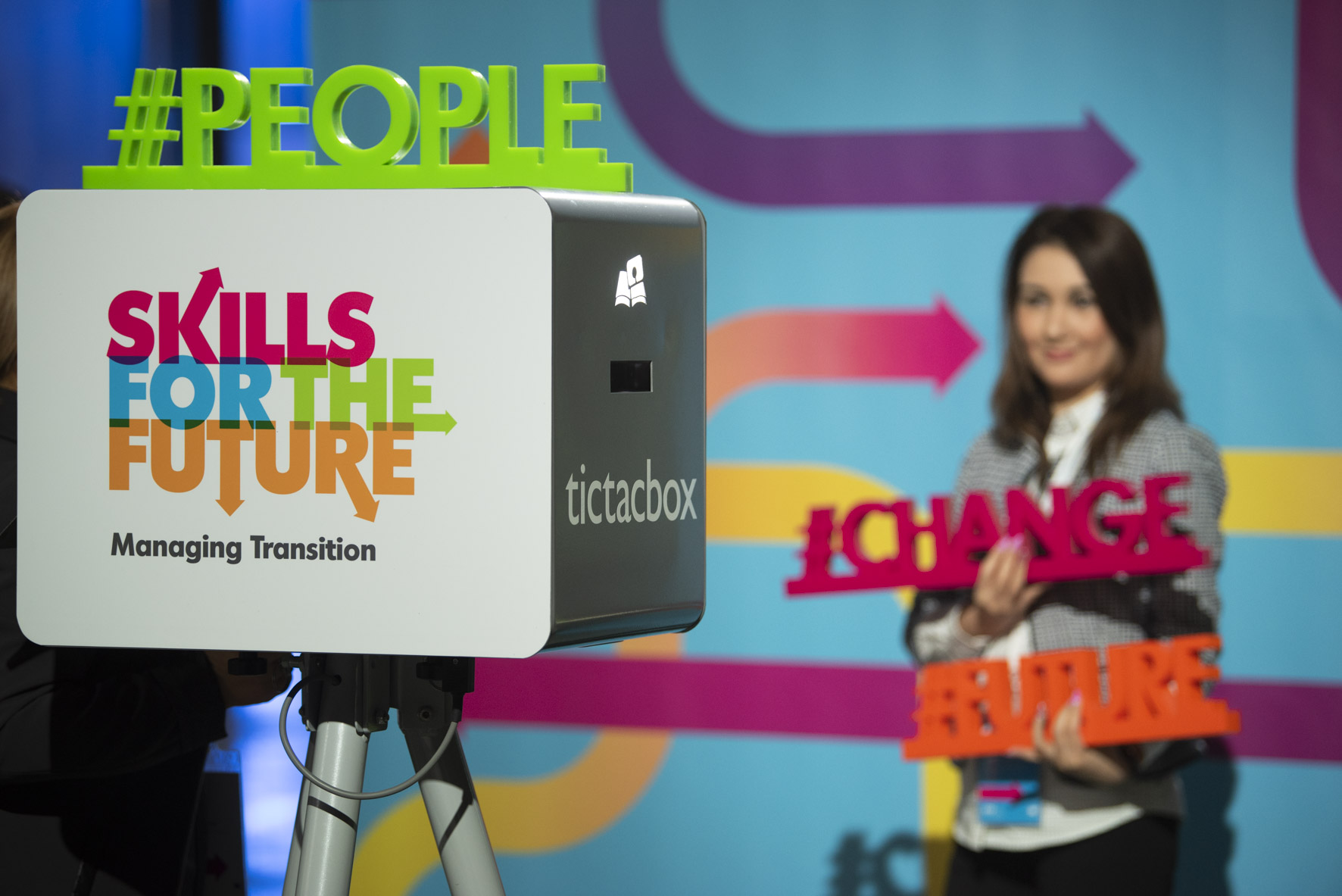“R-EVOLUTIONS: IDENTIFYING HOW TECHNOLOGY AND INNOVATION CHANGE OR CREATE SKILLS NEEDS IN ECONOMIC SECTORS”
The European Training Foundation (ETF) has launched in 2019 a project to explore how technological change and innovation - and other drivers of change - affect jobs and the demand for skills in specific sectors in its partner countries. This is to better understand changing skills demand in developing and transition countries, a concrete need identified at the ETF 2018 international conference “Skills for the Future: Managing Transition”.

What is the objective of the project?
The purpose of the project is to provide evidence on how skills needs in a specific sector are transformed, following the introduction of technological change and innovation in ETF partner countries. This is in addition to changes resulting from shifts in consumer demand, reconfigurations of value chains, and other drivers of change. The project documents the change process and reveals how the provision of education and training provision adapts to it. In particular, it looks at how firms in specific sectors develop/ find the new skills they need and how this influences education and training provision.
What will it produce?
The project generated a methodology for analysing the dynamics of changing skills demand along with new evidence on emerging skills needs at the sectoral level (country reports). The methodology is potentially applicable across sectors, also beyond the first selected case studies.
The reports provide important sector specific findings that can contribute to policy reforms in the countries. Dialogue with a large network of stakeholders catalyzes attention on the upcoming skills needs in the different sectors and offers thoughts for reflection to adapt education and training systems accordingly.
The methodology applied is highly innovative and can potentially generate interesting new findings
The project gathers information by combining the use of big data analysis with in-depth consultation with national stakeholders and actors (i.e. focus groups and interviews), and a survey of innovative companies in the selected sectors. A case study approach is used to gather insights about innovation in selected sectors resulting from introduction of new technologies, greening of economy, climate change, etc. The case studies can focus on traditional, low-tech sectors such as agriculture or modern, high-tech sectors such as the automotive industry, energy, and transport.
What are the first selected case studies?
ETF has selected different sectors in seven countries for in-depth analysis: the agri-tech sector in Israel, the agro-food sector in Morocco, the automotive sector in Turkey, the energy sector in Albania, Tunisia and Egypt (under finalisation), the health and care sector in Ukraine and the construction sector in Armenia. A group of international and national researchers from all three countries are brought together for this project in addition to the ETF’s team of experts.
Timetable
The project was launched in July 2019, with Israel as first case study. The fieldwork in Israel has taken place between October 2019 and February 2020, key findings have been shared with national stakeholders in a digital event in March 2020. The research included desk research, big data analysis, focus groups and an in-depth survey with a group of innovative companies. The Israel report was published in July 2020.
Following the implementation of the first case study, the methodology has been fine-tuned. The research in the other countries has been implemented and completed between 2021 and 2022, results are available on the ETF website. The study in Armenia has been launched in April 2022. The results from this case will be available by autumn 2022.
Example of key questions for a case study on agri-tech in Israel
The specific issues the case study will address are the following:
1) What is the agri-tech sector’s current state of development?
2) What are the skill changes which are beginning to emerge and how these are likely to develop in the future?
3) How well placed is the skills supply system to meet likely future demand for specific types of skill?
4) What are the policy implications for skills when the latest technologies are systematically applied to the agri-tech sector?

The essential engagement of national authorities and actors
It is essential that national stakeholders provide inputs and insights about changing skills needs. While big data analysis, and other forms of data collection are important, the contribution of country and sector experts remains vital if the reality on the ground is to be fully grasped. The ETF relies on its national counterparts to identify the stakeholders to be consulted throughout the project implementation.
Resources
FOW Methodology:
ETF (2021), Skills for the future case studies, methodology | Open Space (europa.eu)
Case studies
ETF (2020), The future of skills: A case study of the agri-tech sector in Israel | ETF (europa.eu)
ETF (2021), The future of skills: A case study of the agri-food sector in Morocco | ETF (europa.eu)
ETF (2021), The future of skills: A case study of the automotive sector in Turkey | ETF (europa.eu)
ETF (2022), Future of skills: Energy sector in Albania | ETF (europa.eu)
ETF (2022), Future of skills: Energy sector in Tunisia | ETF (europa.eu)
ETF (2023), The future skill needs in the construction sector in Armenia | ETF (europa.eu)
Cross-country analysis
ETF (2022), Skilling Greening: No Green Transition without Skills: Act Now!
Events
Webinar "Skilling for the energy transition", 13 May 2022, 11:00 CET
Focus group "Construction sector in Armenia", May 2022
Validation seminar "Construction sector in Armenia", November 2022
Stakeholder workshop "The future skill needs in the energy sector in Egypt", December 2022

The final report on agri-tech sector in Israel is coming out soon. Stay tuned!
It is already available at https://www.etf.europa.eu/sites/default/files/2020-11/future_of_skills_…
Please log in or sign up to comment.